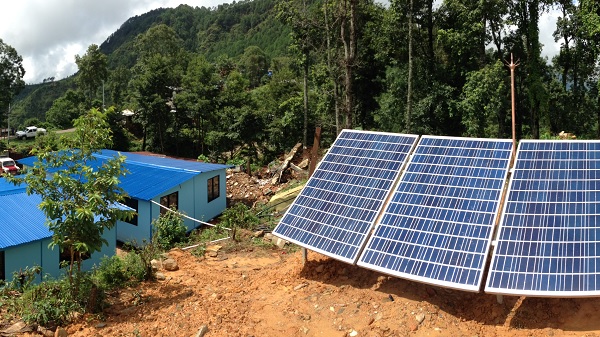
ADDIS ABABA, Ethiopia (Xinhua)–The United Nations Development Program (UNDP) is set to implement renewable energy project incorporating Ethiopia, China and Sri Lanka under the south-south cooperation framework.
Nicholas Rosellini, UN Resident Coordinator and UNDP Resident Representative in China, who is in Ethiopia as part of his working visit to three African countries, said on Thursday that the project by employing experience sharing activities promotes the south-south cooperation between the three countries.
The four-year project, yet to be approved by the Chinese Ministry of Commerce, is expected to promote and encourage significantly the use of renewable energy technologies for household and productive uses in rural communities in Ethiopia.
The renewable energy sector is one of the important priority areas of the south-south cooperation, according to Nicholas.
“What is important is to share the knowledge and experience of countries and to share technologies,” he said.
“China has a lot of very good experiences both in research and deployment of technologies,” he said. If effective, the project will be implemented in a wider range of countries through the south-south cooperation modality, he said.
Nicholas, who visited Cote d’Ivoire and Ghana prior to Ethiopia, held discussions with senior Ethiopian government officials and other UNDP representatives based in Ethiopia on ways of strengthening cooperation.
His visit also includes tour to various UNDP supported development projects in the east African country such as the Bole Lemi industrial park in the capital Addis Ababa and the national biogas project at the outskirts of the capital.
Ahunna Eziakonwa Onochie, UNDP Ethiopia Resident Representative, also said that Ethiopia can learn from China in areas such as the use of renewable energy.
“South-South cooperation is a major area of focus for UNDP and we hope to help Ethiopia scale up its partnership with China,” she said.
Source: Xinhua
——
Other stories:
- Turkish Company to Build USD1.5 Billion Solar Energy Project
- Solar Energy System Installation Project Changing Lives: AMU
- EU, Netherlands Launch Innovative Regional Development and Protection Program (RDPP) in Ethiopia for Refugees
